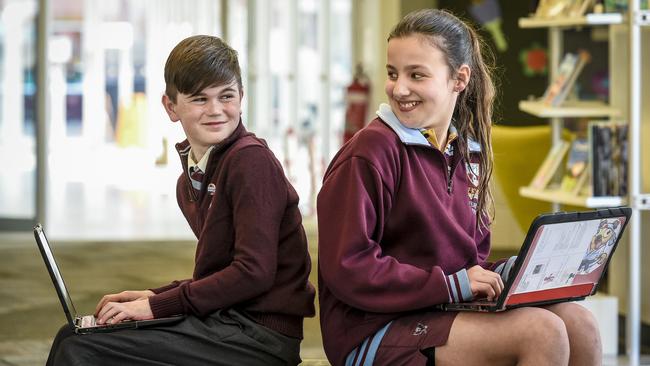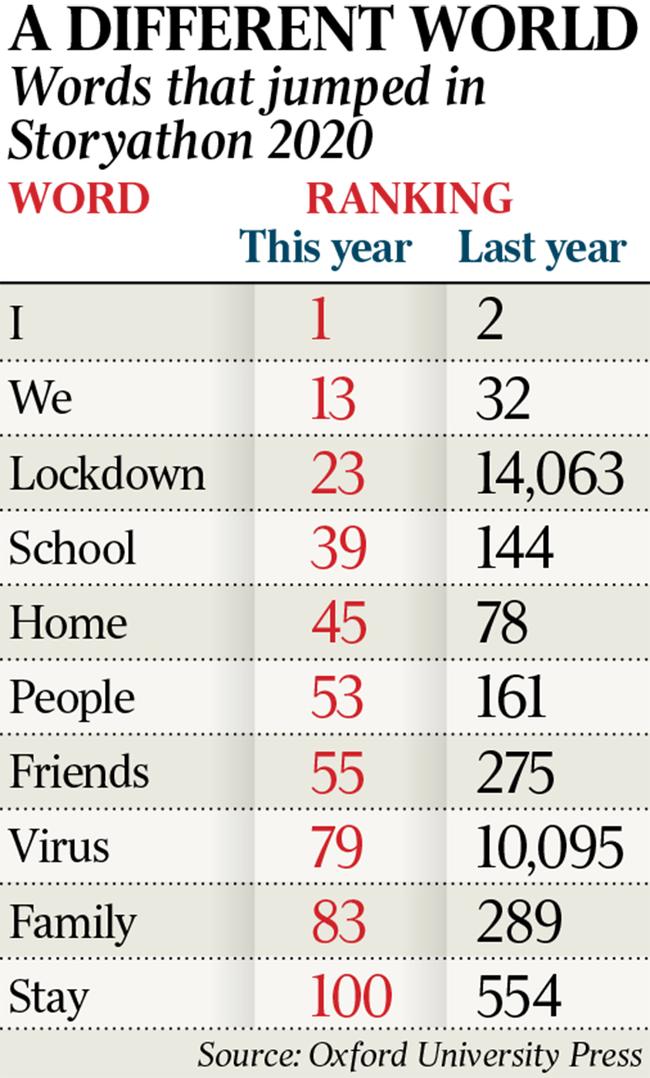Lockdown locks in new words for coronavirus kids
Along with social interaction, the coronavirus is changing the way children speak.

Words such as “lockdown”, “pandemic” and “restrictions” have become entrenched in children’s vocabulary, with a nationwide storytelling event shining a light on the impacts of the coronavirus.
Analysis of more than five million words appearing in more than 20,000 short stories submitted as part of the Storyathon online writing event has provided insight into the development of children’s language and how they have coped throughout the pandemic.
Children aged eight to 14 years wrote about enjoying a slower pace of life, spending more time with family and feeling connected. They also wrote about being scared of catching the coronavirus, missing friends, and being overwhelmed by news about the pandemic.

Researchers from Flinders University, who examined the submissions, found a significant increase in the use of collective nouns, such as “we”, “people” and “everyone”, while singular nouns “my” and “me” dropped off. The words “quarantine”, “isolation”, “pandemic” and “restrictions” made a first-time appearance in writing submissions.
A partnership between Oxford University Press and education entrepreneur Shane Hill, Storyathon challenges children to write a 100-word story on a particular theme. This year’s theme was “A different world”.
Oxford University Press director of publishing and editorial Lee Walker said the way in which children had described COVID-19 pointed to an impressive level of comprehension and vocabulary acquisition.
This was despite some children acknowledging in their stories the fact that, up until this year, they had never heard words such as pandemic.
Flinders University literacy expert Anne Bayetto said research suggested it typically took 10 to 20 active uses of a word before it became part of a person’s vocabulary.
“These words will stay with students; they’ve been spoken by them and others so many times throughout all of this,” she said.
Ms Bayetto said the content of children’s stories was fascinating. “What I picked up reading these stories was a real pleasure in spending quality time with family,” she said.
“Children have written about long walks, playing games, watching TV together, having unrushed dinners. There’s real acknowledgment that family matters.”
Charlie Donaghey and Sophia Monarioyis, students at St John’s Grammar School in Adelaide, were among those who took part.



To join the conversation, please log in. Don't have an account? Register
Join the conversation, you are commenting as Logout